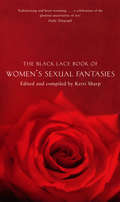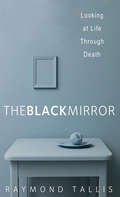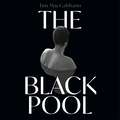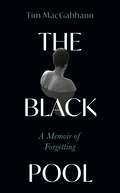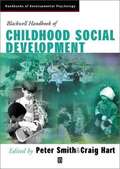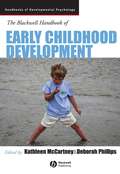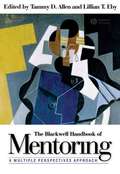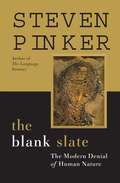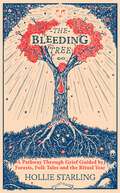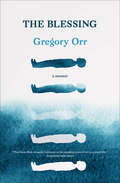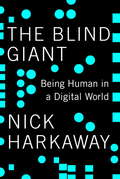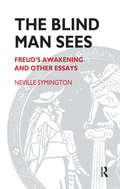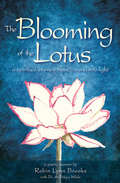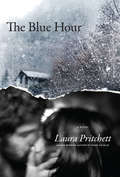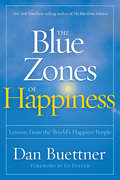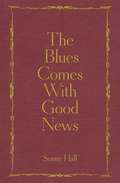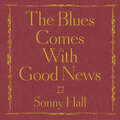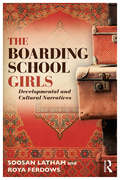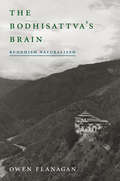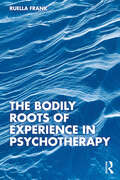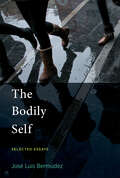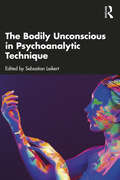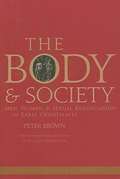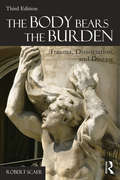- Table View
- List View
The Black Box Society: The Secret Algorithms That Control Money And Information
by Frank PasqualeEvery day, corporations are connecting the dots about our personal behavior-silently scrutinizing clues left behind by our work habits and Internet use. The data compiled and portraits created are incredibly detailed, to the point of being invasive. But who connects the dots about what firms are doing with this information? The Black Box Society argues that we all need to be able to do so-and to set limits on how big data affects our lives. Hidden algorithms can make (or ruin) reputations, decide the destiny of entrepreneurs, or even devastate an entire economy. Shrouded in secrecy and complexity, decisions at major Silicon Valley and Wall Street firms were long assumed to be neutral and technical. But leaks, whistleblowers, and legal disputes have shed new light on automated judgment. Self-serving and reckless behavior is surprisingly common, and easy to hide in code protected by legal and real secrecy. Even after billions of dollars of fines have been levied, underfunded regulators may have only scratched the surface of this troubling behavior. Frank Pasquale exposes how powerful interests abuse secrecy for profit and explains ways to rein them in. Demanding transparency is only the first step. An intelligible society would assure that key decisions of its most important firms are fair, nondiscriminatory, and open to criticism. Silicon Valley and Wall Street need to accept as much accountability as they impose on others.
The Black Lace Book of Women's Sexual Fantasies (Black Lace Book Of Women Sexual Fantasies #3)
by Kerri SharpThe Black Lace Book of Women's Sexual Fantasies reveals the most private thoughts of hundreds of women. Here are sexual fantasies which on first sight appear shocking or bizarre - such as the bank clerk who wants to be a vampire and the nanny with a passion for Darth Vader.Kerri Sharp investigates the recurrent themes in female fantasies and the cultural influences that have determined them: from fairy stories to cult TV; from fetish fashion to historical novels.
The Black Mirror
by Raymond TallisIn this beautifully written personal meditation on life and living, Raymond Tallis reflects on the fundamental fact of existence: that it is finite. Inspired by E. M. Forster's thought that "Death destroys a man but the idea of it saves him," Tallis invites readers to look back on their lives from a unique standpoint: one's own future corpse. From this perspective, he shows, the world now vacated can be seen most clearly in all its richness and complexity. Tallis blends lyrical reflection, humor, and the occasional philosophical argument as he explores his own postmortem recollections. He considers the biological processes and the senses that opened up his late world and the million-nooked space in which he passed his life. His inert, dispossessed body highlights his ceaseless activity in life, the mind-boggling inventory of his possessions, and the togetherness and apartness that characterized his relationships in the material and social worlds. Tallis also touches on the idea of a posthumous life in the memories of those who outlive him. Readers who accompany Tallis as he considers his life through death will appreciate with new intensity the precariousness and preciousness of life, for here he succeeds in his endeavor to make "the shining hour" shine more brightly.
The Black Pool: A Memoir of Forgetting
by Tim MacGabhann'An unforgettable, freewheeling masterclass'MICHAEL MAGEE, Nero Book Award-winning author of Close to Home'Funny, nerve-wracking and utterly compelling'COLIN BARRETT, Booker Prize-longlisted author of Wild Houses'Extraordinary... A writer with a rare gift. I feel changed by it'BELINDA MCKEON, author of Solace'I was floored by the power and beauty of this book'DONAL RYAN, author of The Queen of Dirt IslandPrepare to look into The Black Pool and see a little part of yourself reflected back'JAN CARSON, EU Prize for Literature-winning author of The Raptures'Simultaneously tender, raw, profound, hilarious and horrible, guiding us through a nightmare into beautiful, hard-won wisdom'LISA MCINERNEY, Women's Prize for Fiction-winning author of The Glorious HeresiesFollowing an obsessive mind trying (and failing) to find relief, The Black Pool is a gripping thrill-ride through violent, chaotic underworlds. Tracing the roots of an illness through the failures of youth and adolescence and finally back to childhood, it's about all the wrong places where addicts look for transcendence - from work, to relationships, to writing, to anger.The Black Pool shows what happens when everything falls apart. It shows us rock bottom and the start of the journey to the surface from there. It's a memoir shot full of holes and shocking clarities. Towards the end, it achieves something like serenity - something like recovery.
The Black Pool: A Memoir of Forgetting
by Tim MacGabhann'An unforgettable, freewheeling masterclass'Michael Magee, Nero Book Award-winning author of Close to Home 'Funny, nerve-wracking and utterly compelling'Colin Barrett, Booker Prize-longlisted author of Wild Houses'Extraordinary... A writer with a rare gift. I feel changed by it'Belinda McKeon, author of Solace'I was floored by the power and beauty of this book'Donal Ryan, author of The Queen of Dirt Island'Tim MacGabhann writes with piercing honesty, humour and tenderness... Prepare to look into The Black Pool and see a little part of yourself reflected back'Jan Carson, EU Prize for Literature-winning author of The Raptures'A reading experience of the highest order'Wendy Erskine, author of Dance Move'Extraordinary' Lisa McInerney, Women's Prize for Fiction-winning author of The Glorious HeresiesA raw and powerful memoir of addiction and recovery, across three continents and multiple drugs, from early childhood through adulthood.Following an obsessive mind trying (and failing) to find relief, The Black Pool is a gripping thrill-ride through violent, chaotic underworlds. Tracing the roots of an illness through the failures of youth and adolescence and finally back to childhood, it's about all the wrong places where addicts look for transcendence - from work, to relationships, to writing, to anger.It shows what happens when everything falls apart. It shows us rock bottom and the start of the journey to recovery from there. It's a memoir shot full of holes and shocking clarities. And towards the end, it achieves something like serenity - something like recovery.'Raw and powerful' Irish Times, Books to look out for in 2025'A vibrant, darkly humorous writer' Irish Independent, Non-fiction highlights for 2025'A gripping and personal story of addiction' Irish Examiner, 2025 Books to Read'Unflinchingly honest, heart-wrenching and life-affirming' RTÉ, 10 books we're looking forward to reading in 2025
The Blackwell Handbook of Childhood Social Development
by Peter K. Smith Craig HartThis handbook provides an authoritative and up-to-date overview of research and theory about social development in children from pre-school age to the onset of adolescence. It forms part of a series of four Blackwell Handbooks in Developmental Psychology spanning infancy to adolescence. Contributors come from Australia, Belgium, Canada, Germany, Italy, the Netherlands, the UK and the US. It covers all the major topics in research and theory about childhood social development, and synthesizes the latest research findings in an accessible manner.
The Blackwell Handbook of Early Childhood Development (Wiley Blackwell Handbooks of Developmental Psychology #38)
by Deborah Phillips Kathleen McCartneyThe Blackwell Handbook of Early Childhood Development presents a comprehensive summary of research into child development from age two to seven. Comprises 30 contributions from both established scholars and emerging leaders in the field The editors have a distinguished reputation in early childhood development Covers biological development, cognitive development, language development, and social, emotional and regulatory development Considers the applications of psychology to the care and education of young children, treating issues such as poverty, media, and the transition to school A valuable resource for students, scholars and practitioners dealing with young children
The Blackwell Handbook of Mentoring
by Tammy D. Allen Lillian T. EbyCutting across the fields of psychology, management, education, counseling, social work, and sociology, The Blackwell Handbook of Mentoring reveals an innovative, multi-disciplinary approach to the practice and theory of mentoring.Provides a complete, multi-disciplinary look at the practice and theory of mentoring and demonstrates its advantages Brings together, for the first time, expert researchers from the three primary areas of mentoring: workplace, academy, and community Leading scholars provide critical analysis on important literature concerning theoretical approaches and methodological issues in the field Final section presents an integrated perspective on mentoring relationships and projects a future agenda for the field
The Blank Slate: The Modern Denial of Human Nature
by Steven PinkerThe Blank Slate shows how many intellectuals have denied the existence of human nature by embracing three linked dogmas: the Blank Slate, the Noble Savage, and the Ghost in the Machine. Each dogma carries a moral burden, so their defenders have engaged in desperate tactics to discredit the scientists who are now challenging them.
The Bleeding Tree: A Pathway Through Grief Guided by Forests, Folk Tales and the Ritual Year
by Hollie StarlingIt was the last of the ebbing days, the brink of the new season. It was the murky hours, the clove between sunset and sunrise. It was a tall tree with deep roots and it had been bleeding for a long while.As summer falls into autumn, Hollie Starling is hit by the heart-stopping news that her father has died by suicide. Thrust into a state of 'grief on hard mode', Hollie feels underserved by current attitudes toward grief and so seeks another way through the dark.Following her first year without her father, Hollie embraces her lifelong interest in folklore and turns to the healing power of nature, the changing seasons and the rituals of ancient communities. The Bleeding Tree is an unflinching year-zero guidebook to grief that shows us that by looking back to past traditions of bereavement we can all find our own way forward.'Starling's account of family life is riveting and narrated with grace and honesty, counterpointing the personal with the mythic.' - Irish Times
The Blessing: A Memoir
by Gregory OrrAn acclaimed poet’s “gripping” memoir of an accidental tragedy, a childhood haunted by guilt, and a quest to find healing through art (Publishers Weekly).When Gregory Orr was twelve years old, he shot and killed his brother in a hunting accident. From the immediate aftermath—a period of shock, sadness, and isolation—it quickly became clear that support and guidance would not be coming from his distant mother. Nor would it come from his father, a philandering country doctor addicted to amphetamines. Left to his own devices, the boy suffered.Guilt weighed on him throughout a childhood split between the rural Hudson Valley and jungles of Haiti. As a young man, his feelings and a growing sense of idealism prompted him to activism in the civil rights movement, where he marched and was imprisoned, and then scarred again by a terrifying abduction. Eventually, Orr’s experiences led him to understand that art, particularly poetry, could work as a powerful source of healing and meaning to combat the trauma he carried.Throughout The Blessing, Orr articulates his journey in language as lyrical as it is authentic, gifting us all with a singular tale of survival, and of the transformation of suffering into art.“Even a chaotic and hapless family, it seems, can confer a blessing—the strength to live in the world as it is, and the wisdom to love people as they are. The book is not so much about surviving pain so much as developing a writer’s instinct for transforming it.” —Kathleen Norris, New York Times–bestselling author of The Cloister Walk
The Blind Giant
by Nick HarkawayNick Harkaway, author of Angelmaker, presents a rousing and energizing look at how we can meaningfully and constructively engage with technology--creating an essential handbook for anyone trying to be human in a digital age. Some say our devices will lead us to ruin: isolating us from our neighbors, warping communication, delivering an unregulated flood of information that will destroy our humanity. Some say they will be our salvation: enabling global communication and social engagement, putting all the world's facts at our fingertips, and erasing the barriers that divide us, bringing out the best qualities of humanity. In The Blind Giant, novelist and blogger Nick Harkaway takes us on a lucid, insightful and personal tour of how we live our lives in our technology-obsessed culture. A self-described "missing link" between the pre-Internet generation and the "digital natives" who have grown up with technology, Nick is an enthusiastic guide to digital culture who weaves together examples from literature, psychology, neurology, sociology, history, and his own life while exploring the hazards and joys of the human-machine relationship. In the final analysis, whether we meaningfully engage with the machines we have created, or risk living in a world which is designed to serve computers and corporations rather than people, this book is a must-read for anyone concerned with our digital future.
The Blind Man Sees: Freud's Awakening and Other Essays
by Neville SymingtonThe papers in this book have been written over a period of fifteen years, and focus in the similarity between psychoanalysis and religion. The author argues that psychoanalysis can be seen as a scientific religion with Freud as the leader of the movement. He examines the various stages of the journey made by a religious leader from "blindness" to "founding an institution" and finds counterparts in the development of psychoanalysis while drawing examples from Buddhism, Christianity and Islam. He invites the reader on a journey with him - to examine the human mind, our society, the process of psychoanalysis, science and philosophy. He successfully uses examples from the consulting room to illuminate his arguments. The author's honest accounts of the search for answers relevant to all of us encourage the reader to think further and deeper than he or she had intended. 'The psychoanalyst examines scientifically the emotional pattern in himself and the other.
The Blooming of the Lotus: A Spiritual Journey From Trauma Into Light
by Robin Lynn BrooksSurvivors often feel alone in their experiences, with emotions that linger long after the trauma is over. As a survivor of incest, Robin Lynn Brooks understands the feelings. In her ground-breaking poetic memoir, The Blooming of the Lotus, she takes you on her deeply personal journey of healing. Traveling into the abyss of her past, exploring the depths of her experiences with brutal incest, violence, and torture, she journeys on her awe-inspiring quest to uncover her authentic self. The book will strike a cord with survivors, lending hope that even the deepest, darkest pit of despair can be opened to the light. "I have heard many accounts of trauma over the years, yet it is rare to come upon one captured so perfectly and expressed with such candor, beauty, and grace. . . Robin's inexhaustible courage, perseverance, and insight through the maze of self-discovery and healing are reflected on every page. She poignantly reveals her deepest vulnerability in an effort to share her story and healing process with other survivors. With great success she conveys that the journey from the darkest imprisonment to the light of freedom is indeed possible. This memoir is Robin's gift to us all." ~AnDréya Wilde, Ph.D.
The Blue Hour
by Laura PritchettWinner of the 2018 Colorado Book Award, "Pritchett writes with an evident love for the mountains and the people that call them home (Westword).The residents of Blue Moon Mountain form a tight–knit community of those living off the land, stunned by the beauty and isolation all around them. So when, at the onset of winter, the town veterinarian commits a violent act, the repercussions of that tragedy are felt all across the mountainside, upending their lives and causing their paths to twist and collide in unexpected ways. The housecleaner rediscovering her sexual appetite, the farrier who must take in his traumatized niece, the grocer and her daughter, the therapist and the teacher, reaching out to the world in new and surprising ways, and the ragged couple trapped in a cycle of addiction and violence. They will all rise and converge upon the blue hour—the l'heure bleu, a time of desire, lust, honesty—and learn to navigate the often confusing paths of mourning and love.Writing with passion for rural lives and the natural world, Laura Pritchett, who has been called ""one of the most accomplished writers of the American West,"" graces the land of desire in vivid prose, exploring the lengths these characters—some of whom we've met in Pritchett's previous work—will traverse to protect their own.
The Blue Zones of Happiness: Lessons From the World's Happiest People (The Blue Zones)
by Dan Buettner Ed DienerNew York Times best-selling author Dan Buettner reveals the surprising secrets of what makes the world's happiest places—and shows you how to apply these lessons to your own life. In this inspiring guide, you’ll find game-changing tools drawn from global research and expert insights for achieving maximum fulfillment. Along the way, you'll: • Discover the three strands of happiness—pleasure, purpose, and pride—that feature prominently in the world's happiest places. • Take the specially designed Blue Zones Happiness Test to pinpoint areas in your life where you could cultivate greater joy, deeper meaning, and increased satisfaction. • Meet the world's Happiness All-Stars: inspiring individuals from Denmark to the United States who reveal dynamic, practical ways to improve day-to-day living. • Discover specific, science-based strategies for setting up a “life radius” of community, work, home, and self to create healthier, happiness-boosting habits for the long-term.
The Blues Comes With Good News: The perfect gift for the poetry lover in your life
by Sonny HallSoul searching poetry for a new generation.Inspired by Diane di Prima, Rene Ricard, Henry Miller and others 'who tell it like it is', The Blues Comes with Good News is a collection of poems by prolific writer, Sonny Hall. The collection ranges from articulating addiction, self-destruction and identity, to romantic relationships, his journey to recovery and his unapologetic depiction of truth, through life and its happenings. At 18 years old Sonny entered a treatment centre for alcohol and drug addiction, after losing his biological mother - who he remained close to despite being adopted aged 4 - to a heroin overdose. Three months into his treatment, Hall started writing poems as a way of ordering 'all the madness' in his head. He has since written hundreds of poems, which all portray his newfound intimacy with life, figuring it out as he goes on, never failing to write sincerely about the sting of life, through a rare candour, explicit and seedy within the realms of his own indulgence. Illustrations by JACK LAVER
The Blues Comes With Good News: The perfect gift for the poetry lover in your life
by Sonny HallSoul searching poetry for a new generation.Inspired by Diane di Prima, Rene Ricard, Henry Miller and others 'who tell it like it is', The Blues Comes with Good News is a collection of poems by prolific writer, Sonny Hall. The collection ranges from articulating addiction, self-destruction and identity, to romantic relationships, his journey to recovery and his unapologetic depiction of truth, through life and its happenings. At 18 years old Sonny entered a treatment centre for alcohol and drug addiction, after losing his biological mother - who he remained close to despite being adopted aged 4 - to a heroin overdose. Three months into his treatment, Hall started writing poems as a way of ordering 'all the madness' in his head. He has since written hundreds of poems, which all portray his newfound intimacy with life, figuring it out as he goes on, never failing to write sincerely about the sting of life, through a rare candour, explicit and seedy within the realms of his own indulgence. Illustrations by JACK LAVER(P) 2019 Hodder & Stoughton Ltd
The Boarding School Girls: Developmental and Cultural Narratives
by Soosan Latham Roya FerdowsThey were children. Put on a train in a strange land, they waved goodbye to a parent as they headed to an educational institution that, unbeknownst to them, was to become their new home. Separated from their loving families, they strived to meet the expectations of the grownups and, in some cases, to rebel against them. Now, independent women, compassionate mothers, and astute professionals, they look back on their youth in the 1960’s and 1970’s to make sense of why they were sent away, and to give meaning to the sources that have sustained them over the years. Ex-boarders themselves, Latham and Ferdows provide vivid and emotionally embodied narratives of everyday lives of The Boarding School Girls. This unique collection of stories explores key issues of identity and lifespan development to seek understanding of the influence of national, religious and family culture on development within two conflicting sets of cultural values. Combining unique qualitative data with illuminating tales of resilience and accomplishment in what is likely to simultaneously inform and inspire readers with feelings of joy and sadness, love and hate, abandonment and hope, but mainly trust and forgiveness. The stories of eleven ‘little rich’ Persian girls are a nostalgic reminder of their past cross-cultural ordeals, a pragmatic perspective on psychological implications of boarding school education in England, and a celebration of the possibilities of the future. The Boarding School Girls is valuable reading for students in cultural, developmental and educational psychology and the humanities, as well as clinical psychologists and educators looking at the impact of boarding school on adolescent development.
The Bodhisattva's Brain: Buddhism Naturalized
by Owen FlanaganCan there be a Buddhism without karma, nirvana, and reincarnation that is compatible with the rest of knowledge?If we are material beings living in a material world—and all the scientific evidence suggests that we are—then we must find existential meaning, if there is such a thing, in this physical world. We must cast our lot with the natural rather than the supernatural. Many Westerners with spiritual (but not religious) inclinations are attracted to Buddhism—almost as a kind of moral-mental hygiene. But, as Owen Flanagan points out in The Bodhisattva's Brain, Buddhism is hardly naturalistic. In The Bodhisattva's Brain, Flanagan argues that it is possible to discover in Buddhism a rich, empirically responsible philosophy that could point us to one path of human flourishing. Some claim that neuroscience is in the process of validating Buddhism empirically, but Flanagan's naturalized Buddhism does not reduce itself to a brain scan showing happiness patterns. "Buddhism naturalized," as Flanagan constructs it, offers instead a fully naturalistic and comprehensive philosophy, compatible with the rest of knowledge—a way of conceiving of the human predicament, of thinking about meaning for finite material beings living in a material world.
The Bodily Roots of Experience in Psychotherapy
by Ruella FrankThis book explores the significance of movement processes as they shape one’s experience through life. It provides a comprehensive, practical understanding of how we lose the wonder and curiosity we move with as children, and how we can reclaim that. A new paradigm is presented in the making of experience through a radical and thorough investigation into the basics of animated life. The book utilizes a precise phenomenological language for those subverbal interactions that form the foundation of lived experience. The centrality of those interactions to the therapeutic encounter is set forth through richly detailed therapy vignettes. The building of experience is meticulously explored via the bridging of infant-parent dyads and the functional similarity of those dyads to the unfolding patient-therapist relationship. Readers learn to acknowledge routine inhibitions developed in early life, appreciate their former usefulness, and discover how to restore the lively flow of moving-feeling responses. This book is essential for all psychotherapists who wish to integrate the dynamics of movement into their work; educators who work with babies and young children; and all those wishing to understand better their psychophysical selves.
The Bodily Self: Selected Essays (The\mit Press Ser.)
by Jose Luis BermudezEssays on the role of the body in self-consciousness, showing that full-fledged, linguistic self-consciousness is built on a rich foundation of primitive, nonconceptual self-consciousness.These essays explore how the rich and sophisticated forms of self-consciousness with which we are most familiar—as philosophers, psychologists, and as ordinary, reflective individuals—depend on a complex underpinning that has been largely invisible to students of the self and self-consciousness. José Luis Bermúdez, extending the insights of his groundbreaking 1998 book, The Paradox of Self-Consciousness, argues that full-fledged, linguistic self-consciousness is built on a rich foundation of primitive, nonconceptual self-consciousness, and that these more primitive forms of self-consciousness persist in ways that frame self-conscious thought. They extend throughout the animal kingdom, and some are present in newborn human infants. Bermúdez makes the case that these primitive forms of self-awareness can indeed be described as forms of self-consciousness, arguing that they share certain structural and epistemological features with full-fledged, linguistic self-consciousness. He offers accounts of certain important classes of states of nonconceptual content, including the self-specifying dimension of visual perception and the content of bodily awareness, considering how they represent the self. And he explores the general role of nonconceptual self-consciousness in our cognitive and affective lives, examining in several essays the relation between nonconceptual awareness of our bodies and what has been called our “sense of ownership” for our own bodies.
The Bodily Unconscious in Psychoanalytic Technique
by Sebastian LeikertThe Bodily Unconscious in Psychoanalytic Technique explores how corporeality and body memory can be more strongly integrated into psychoanalytic work.This book brings together an international range of contributors to consider the bodily unconscious from different theoretical perspectives. Concepts from the work of Freud, Bion, Winnicott, Lacan, Laplanche, and Fonagy are developed with the aim of incorporating body memory into psychoanalytic technique. The contributors consider how severe and complex clinical states, dominated by bodily symptoms and disorganization, can be approached with methods that go beyond classical interpretation. The book includes ten case histories and discussion of key themes including transference and countertransference, feelings of corporeality and bodily sensations, and features clinical material throughout.The Bodily Unconscious in Psychoanalytic Technique will be essential reading for psychoanalysts and psychoanalytic psychotherapists in practice and training, particularly those interested in somatic approaches.
The Body And Society: Men, Women, and Sexual Renunciation in Early Christianity; Twentieth Anniversary Edition With A New Introduction
by Peter BrownFirst published in 1988, Peter Brown's The Body and Society was a groundbreaking study of the marriage and sexual practices of early Christians in the ancient Mediterranean and Near East. Brown focuses on the practice of permanent sexual renunciation-continence, celibacy, and lifelong virginity-in Christian circles from the first to the fifth centuries A. D. and traces early Christians' preoccupations with sexuality and the body in the work of the period's great writers. The Body and Society questions how theological views on sexuality and the human body both mirrored and shaped relationships between men and women, Roman aristocracy and slaves, and the married and the celibate. Brown discusses Tertullian, Valentinus, Clement of Alexandria, Origen, Constantine, the Desert Fathers, Jerome, Ambrose, and Augustine, among others, and considers asceticism and society in the Eastern Empire, martyrdom and prophecy, gnostic spiritual guidance, promiscuity among the men and women of the church, monks and marriage in Egypt, the ascetic life of women in fourth-century Jerusalem, and the body and society in the early Middle Ages. In his new introduction, Brown reflects on his work's reception in the scholarly community.
The Body Bears the Burden: Trauma, Dissociation, and Disease
by Robert ScaerWhen The Body Bears the Burden made its debut in 2001, it changed the way people thought about trauma, PTSD, and the treatment of chronic stress disorders. Now in its third edition, this revered text offers a fully updated and revised analysis of the relationship between mind, body, and the processing of trauma. Here, clinicians will find detailed, thorough explorations of some of neurobiology’s fundamental tenets, the connections between mind, brain, and body, and the many and varied ways that symptoms of traumatic stress become visible to those who know to look for them.

